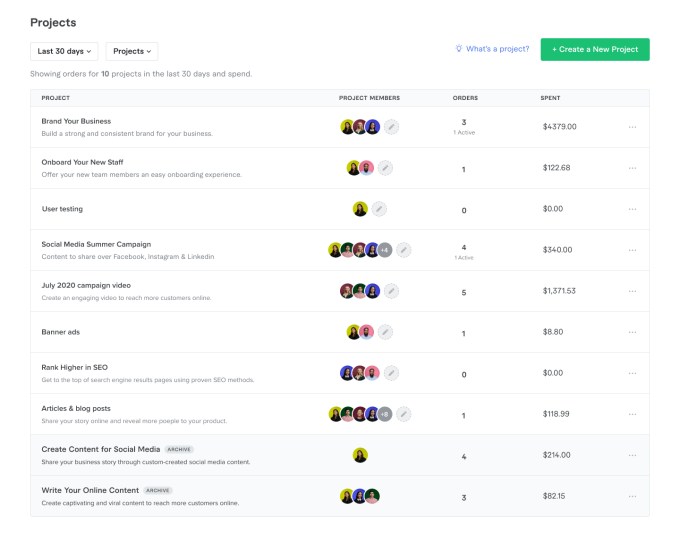It’s always a pleasure to chat with Homage co-founder and chief executive Gillian Tee because of her nuanced take on how technology can help elderly and other vulnerable people. According to the United Nations, people 65-years-old and over is the fastest-growing age group worldwide. At the same time, there is also an acute shortage of caregivers in many countries, complicated by high rates of burnout in the profession.
“It’s absolutely one of the most important social topics and global issues,” Tee said during her Disrupt session (the video is embedded at the bottom of this article).
Launched in Singapore four years ago, Homage’s platform uses a matchmaking engine to help families find the best caregivers, while its telehealth platform provides services like online medical consultations and screenings. It has since expanded in Malaysia and yesterday announced a new strategic investment from Infocom, one of the largest healthcare technology companies in Japan. The partnership will enable Homage to accelerate the Asia-Pacific expansion of its caregiving and telehealth platform.
Before launching Homage, Tee was co-founder of New York-based Rocketrip. A ticket-booking platform created to reduce work travel-related costs for companies, Rocketrip attracted investors like Google Ventures, Y Combinator and Bessemer Ventures and raised more than $30 million. But in 2016, Tee decided to return to Singapore, her home country, after living abroad for about 15 years. In her Disrupt session, Tee said this was partly to be closer to her mother, and because she felt that her startup experience could also be applied to Southeast Asia.
Tee knew that she wanted to launch another company, but she didn’t decide to tackle the caregiving space immediately. That idea materialized when several of her close relatives were diagnosed chronic conditions that needed specialized care.
“We didn’t know how to cope or how even to start thinking what was required, and that was when I realized, wow, I needed to get myself schooled in many ways,” Tee said.
Many families around the world are dealing with the same challenges as their populations age and social dynamics shift so family members who traditionally would have been carers for relatives are unable to do so because they have moved away or need to work.
Families often rely on word-of-mouth or agencies to find caregivers, a complicated, time-intensive and emotionally difficult process. Homage uses matching algorithms to make it easier. One of the most unique things about the platform is how much detail it goes into. Providers are not only screened based on their certifications and the kind of care they provide (for example, long-term care, respite care, physical therapy or rehabilitation), but specific skills.
For example, many patients need mobility assistance, so Homage assesses what kind of transfers they are able to safely perform. Then its matching technology decides which caregivers are best suited for a patient. By making the process more efficient, Homage also lowers costs, making its services accessible to more people while increasing pay rates for providers.
This taps into another one of Homage’s goals: expanding the caregiving pool in its markets and retaining talent. Other ways it addresses the issues is by placing caregivers on its platform into the right jobs, organizing continuing education programs and making sure they are not over-scheduled and have flexibility. For example, some caregivers on the platform have long-term contracts, while others work with Homage clients only a few days a week.
A holistic approach to “age-tech”
In June, Homage launched its telehealth service. Called Homage Health, the platform has been in development for a while, but its launch was accelerated because of the COVID-19 pandemic. Remote consultations fit into the “high-touch,” or in-person, care side of the company’s business because many patients need regular screenings or consultations with doctors and specialists. For patients who have limited mobility or are immunocompromised, this makes it easier for them to fit routine visits into their schedules.
Hardware, including wearable sensors, also show promise to identify any potential health issues, like heart conditions, before they require acute care, but one challenge is making them easy for patients to integrate into their daily routines or remember to wear, Tee said.
Overall, Homage’s mission is to create a holistic platform that covers many caregiving needs. Its new partnership with strategic investor Infocom will help bring that forward because the company, which Tee said Homage has been talking to for several years, works with about 13,000 facilities in Japan, including senior residences and hospitals. Infocom develops software for a wide range of verticals, including drug, hospital and medical record management, and medical imaging.
Infocom also runs its own caregiving platform, and its partnership with Homage will enable the two companies to collaborate and reach more patients. Japan has one of the largest populations of elderly people in the world. Tee said at minimum, half a million caregivers need to be mobilized within the next five to ten years in Japan in order to meet demand.
“We need to start building infrastructure to enable people to be able to access the kind of care services that they need, and so we really align in terms of that mission with Infocom,” said Tee. “They also have a platform that engages caregivers to apply for jobs in Japan and they see the Homage model as being particularly applicable because it’s curated as well.”




